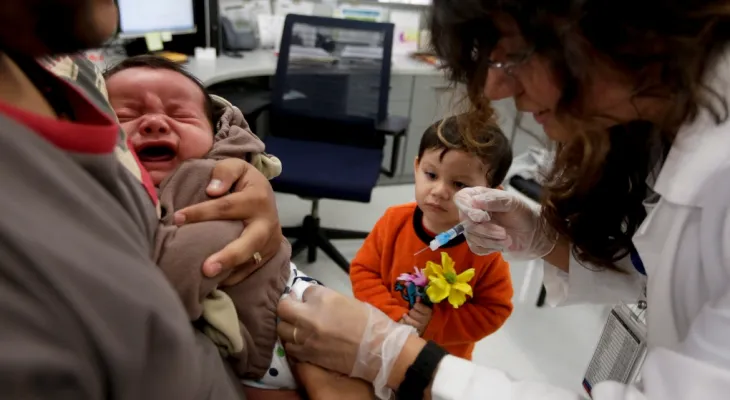Search here
Newspaper
Search here

Arab Canada News
News

Published: May 8, 2024
With the spread of the whooping cough epidemic in Europe and the number of cases increasing 10 times compared to the past two years.
Although there has been no nationwide outbreak declared in Canada, whooping cough is regularly detected in the country, according to the Public Health Agency of Canada. Here’s what you need to know about this infectious disease.
Whooping cough, also known as pertussis, is a highly contagious disease caused by bacteria called Bordetella that affect the airways and lungs. It was also referred to as the "100-day cough" because symptoms can last for several months if left untreated.
What are the symptoms?
Whooping cough causes severe coughing fits that can lead to choking or vomiting, and the cough can be so violent that a "whoop" sound can be heard when someone tries to catch their breath.
Whooping cough spreads easily through close contact with an infected person; the bacteria can survive on dry surfaces for two to six days.
How common is whooping cough?
The bacteria that cause the disease are present worldwide. According to the Public Health Agency of Canada, there are between 1,000 to 3,000 cases in the country each year, and 20 to 40 million cases globally. The European Centre for Disease Prevention and Control states that widespread outbreaks occur every three to five years.
An outbreak was reported in Canada in 2023 in Manitoba, Saskatchewan, and Alberta. In March, Alberta's health services warned of a significant rise in cases in Okotoks, south of Calgary.
How serious is it?
Without treatment, whooping cough can lead to brain damage and even death. It is more dangerous for children under one year old, especially those who are not fully vaccinated, as well as for the elderly. Europe has recorded 11 deaths among infants and eight among the elderly in the ongoing outbreak, with an estimated 400,000 deaths worldwide each year.
Is there a vaccine?
Yes. Children in Canada typically start receiving the whooping cough vaccine at two months of age. Children under six years old need five doses for full protection.
The Public Health Agency of Canada urges anyone who has regular contact with an infant to be vaccinated at least two weeks before seeing them. The effectiveness of the vaccine wanes over time, so a booster dose may be needed. Booster doses are also typically administered during pregnancy between 27 and 32 weeks.
Vaccination rates vary significantly across the country. In the southern health region of Alberta, for example, only 58.1 percent of children under two are protected.
Dr. Craig Jin, a professor in the Department of Microbiology, Immunology and Infectious Diseases at the University of Calgary, recently stated to CTV News Calgary, "For many of these infections and diseases, we need community vaccination rates to be over 80 percent, and for some of them, including whooping cough, ideally over 90 percent."
How is whooping cough tested and treated?
Whooping cough can be detected through laboratory testing. All cases must be reported to local health authorities. Infections are usually treated with antibiotics.
Comments